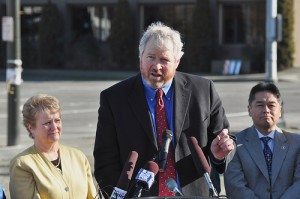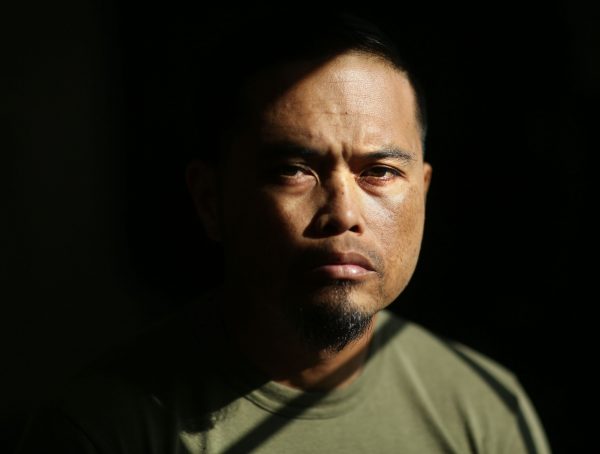 The mayor of Seattle is telling local TV stations to back off. In Georgia, the governor’s office went so far as to ban an Atlanta station from a public event. What’s going on here?
The mayor of Seattle is telling local TV stations to back off. In Georgia, the governor’s office went so far as to ban an Atlanta station from a public event. What’s going on here?
Elected officials often don’t like the way they’re covered but they usually put up with it. After all, they’re on the public payroll and media coverage goes with the territory. But last week, in a 24-hour period, politicians on both coasts had it out with television journalists who cover them.
In Seattle, KOMO reports that the mayor’s office sent an email to the local television stations telling them not to crowd around the mayor at press events or try to reach him at home.
The email was sent shortly after a group of reporters and photographers approached McGinn at a Friday morning event to ask him about his appointment of a bicycle club leader to fill a $95,000-per-year transportation policy post. That impromptu question-and-answer session came the morning after a KOMO News reporter and photographer went to McGinn’s house at 9:05 p.m. to see if he was available to talk about the surprise appointment.
The email included this screenshot:

That’s helpful, right? My guess is that most people who saw the email had a good laugh and went back to work. But what happened in Georgia wasn’t so funny.
According to the Atlanta Journal-Constitution, the governor’s press office was angry about a story by WAGA’s I-Team that a fundraising firm hired by the governor was connected to his daughter-in-law. So the next day, state troopers blocked a WAGA crew from covering a public bill signing.
Both the mayor and the governor may have legitimate complaints with their local stations, but their reactions seem out of line, don’t they?









5 Comments
My head is still spinning at the contemptible level of this abuse of power! I have one comment: The state trooper in this situation informed the reporter that he had been ordered to prevent the reporter from entering the public event. Assuming that this event was indeed open to the general public, there is no basis for the exclusion UNDER THE LAW. Therefore, any order to exclude is NOT a LAWFUL order. As such, the reporter is not legally bound to obey the order. It is, I recognize, easy to armchair quarterback this confrontation. But my 30 years in TV and education would have prompted me to attempt to enter, forcing law enforcement to take an illegal action against me. Go ahead-arrest me. If the exclusion order is illegal, so is the arrest. Take it to court; force the legality issue while it is alive.
I’ve had a growing feeling for about a year that government public relations machines are growing in power and are more emboldened. Even the most minor quibbles with stories warrant a call to my news director. Sometimes, the phone calls go out before the story is even out of the morning meeting. The school district successfully restricted who would conduct an interview of a controversial school superintendent.
I think they’re emboldened because reporting staffs are smaller and younger. The amount of critical news coverage of governments (and everything else) is dwindling. Meanwhile, the PR machines are getting bigger and more savvy.
I’ve been reporting for more than a decade here. I’ve never seen it like this. In this environment strong news management and reporters with backbone are crucial.